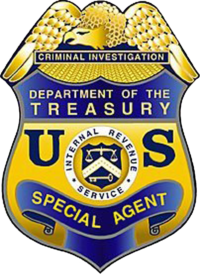Originally published on Forbes.com June 6th, 2014
It is hard to believe that a CPA could be sent to prison, because of clients running personal expenses through the business, but that may well be in the cards for Larry Couchot of Dayton Ohio. The Department of Justice issued a press release yesterday about his guilty plea. It hardly strikes one as the crime of the century:
According to documents filed with the court, Couchot admitted that for tax years 2006 through 2010, he assisted in the preparation of false individual income tax returns for a group of individuals associated with the Cadillac Ranch restaurants, which caused a tax loss of over $191,000 to the IRS. On May 15, 2014, Jon Field from Dublin, Ohio, along with Eric Schilder, of Marion, Ohio, and Paul Butler, also from Dublin, pleaded guilty to tax charges related to Cadillac Ranch.
According to documents filed with the court, during the period 2006 through 2010, Couchot was aware that these individuals used a substantial amount of company funds to pay for personal expenses, including payments for their personal cars, car insurance, country club dues, personal credit card charges and their individual income tax liabilities. Couchot also admitted that he was aware that one individual used company funds to pay for other personal expenses, including lawn services, repairs and maintenance to personal residences, granite counter tops and TV and audio systems.
A fellow I knew who had reasons to know about such things once told me that you need to evade over $100,000 per year for three years to get the IRS Criminal Investigation Division really interested in you. By those standards, Mr. Couchot’s work seems to be a mere peccadillo. $191,000 for three individuals over five years works out to not much over $15,000 per return. On the other hand, that would imply that they were averaging about $50,000 per return in personal expenses, which you would think would kind of stick out, although it would really depend on where they were burying them.
Leona Helmsley, “The Queen of Mean”, went to prison for running personal items through her company (After all, it is just the little people who pay taxes), but the amounts ran into the millions and I don’t think that any tax preparers were jailed as a result, although two financial executives from her organization did get caught up in the dragnet.
An earlier press release by the Justice Department describes in some detail what the clients were up to. It was more than running personal expenses through the business. Joel Field had collection issues going back to 1997 and was apparently scrambling to hide assets. None of that is mentioned in the press release about Mr. Couchot.
In an article on helping clients get out of federal prosecution, Nathan Hochman lays out the very low odds of ever coming into the sights of a federal prosecutor for a tax crime (Numbers are a bit dated). 130 million taxpayers filing 240 million returns of all sorts. IRS estimates that 3% of the returns – 4 million are fraudulent. The IRS has 2,800 special agents who initiate 4,000 criminal investigations resulting in 2,800 prosecution recommendations. So even a crooked taxpayer has a better than 99% chance of escaping even criminal investigation (Civil penalties are another matter).
With that said, once you are in their sights, getting out of them is very difficult. Apparently, the “Why me?” argument is of little avail. I asked Jack Townsend who blogs about criminal tax issues for his thoughts on this case.
This appears to a mainstream type prosecution of a preparer. This preparer knew that the returns he was preparing were false. That’s the case. While at one level, most preparers know that running personal stuff through a small business is not uncommon, where they know that, in a particular case for which they prepare the returns, that is happening, they know that the returns are false. They have the level of willfulness required to prosecute. Not exceptional.
Mr. Couchot, who is 59, and appears to head a fairly substantial firm (I’m not giving a link, since there is always the possibility of confusion), is facing as much as a $250,000 fine, three years in prison and one year supervised release for each of the two counts. I guess there are worse ways than getting fired by a national firm to cap off a long career in public accounting. Something tells me that the example being made of him won’t serve as a huge deterrent for preparers who have built their practice around serving sketchy clients, but it might help the rest of us to be more careful about who we take on.
You can follow me on twitter @peterreillycpa.































































































